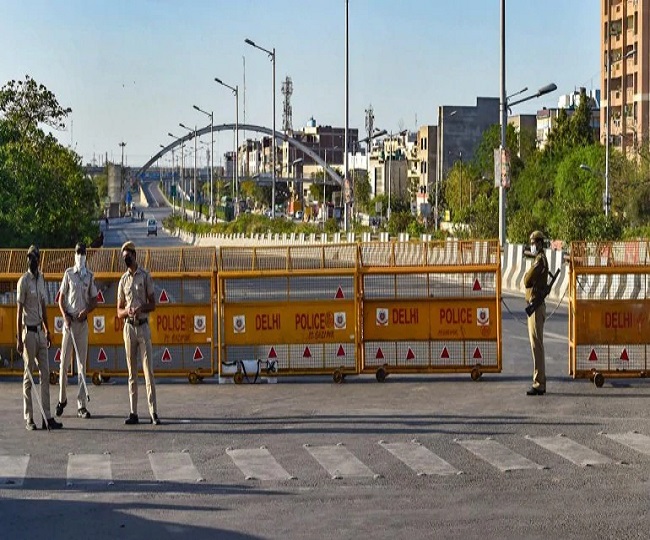Quality of Life. Corruption. Happiness. Transparency. Democracy. Freedom of Speech. Education. Livable Cities. Year in and year out, we see indices for all those factors and so is the case with Press Freedom. On this day, we have this sad duty of commemorating the journalists killed each year and discussion about rankings and indices takes place. Of course, it’s simple to deflect this discussion by pointing to those at the bottom of indices and using the “At-Least-We-Are-Not-As-Bad-As” line of reasoning.
So, on this World Press Freedom Day, in addition, to keep an eye on the ranking, it is also important to look inward which means looking at both the political establishments and structural barriers impeding the participation of a truly representative cross-section of society in the work of journalism. Because freedom of Press is affected by not only state censorship and legislation but also by considerable economic barriers.
Freedom means very little if large segments of a population are predetermined to be unsuitable, and thus not given access to that freedom. The world is loomed out of the leaders believing in authoritarian regimes and is using more heinous tactics to instill public mistrust and animosity towards the fourth pillar of democracy, perceiving journalists who don’t endorse their policies as traitors, agitators, and disruptors of their preferred narrative of truth.
Even the countries like UK and USA: supposed bastions of Free Press and Free Speech, hardly inspire confidence with recent events of killing of Wendi Winters, imprisonment for 35-years of US whistleblower Chelsea Manning, the murder of The Washington Post journalist Jamal Khashoggi, and indictment of WikiLeaks founder Julian Assange in the UK and many more such cases. In Vietnam laws have been so draconian that blogging about corruption can land a citizen in jail for 15-years, Less than a quarter of the world is regarded as a good place for the media and on top of that are the Scandinavian nations (Norway, Sweden & Denmark), home to the most free press. And where does India sit in all this?
The polemic against the freedom of Press in India
India is facing the version of democracy, where means of information are kept narrowly and rigidly controlled. Press Freedom is a quaint concept now. Are you wondering if it’s the incorrect version of democracy? The ongoing political establishment has been known for frightening the population and terrorize them so they become afraid to unravel the truth; setting up such a shoddy belief and infecting it with threads of pre-war nationalism produces a magnificent victory for people-in-power.
Knowingly publishing lies to serve a political purpose is not journalism. It is propaganda and people who deal with that kind of information are not journalists. However, in a surreal world where praise from public officials is considered a job well done, it is truly no wonder that India is ranked 142nd in World Press Freedom Ranking 2020.
Reporting close to the truth as possible and correcting inaccuracies when they occur are real hallmarks of journalism. It is not just a profession wherein one flaunts their writing skills or the intimacy they share with the thesaurus or they want to go on long vacations and make oodles of money. Being a journalist is a 24*7 commitment and the work does not stop on a weekend or public holidays.
Increasing government powers and new laws have combined to make it more difficult for journalists to do their job lately. “Threats, libels and attacks and even murdering is now part of the ‘occupational-hazard’ for journalists”. Media has always been in perpetual war with the people in power so much so that veteran journalists wear the criticism from the government as a badge-of-honor. ‘Jihadi’, ‘Presstitutes’, those are some of the insults critical journalists receive routinely.
Remembering the death of Indian Newspaper editor Gauri Lankesh for being overly critical of Hindu Nationalism, caste system, and the discrimination against women. New York-based journalist Atish Taseer got his Overseas Citizen of India card revoked after he wrote a cover story for Time, critical of the government. Sandeep Sharma, the journalist who had been investigating illegal sand mining in MP, was crushed to death by a garbage truck on March 26, 2018. In Bihar, a day earlier two other journalists Navin Nischal and Vijay Singh, sub-editor with Daily Dainik Bhaskar, were deliberately run over and killed by an SUV.
In June 2017, Central Bureau of Investigation raided the residence of Pronnoy Roy later on, the same has been done with Raghav Bahal, editor of the Quint as an act of intimidation and no need to mention the incessant press censorship in Kashmir and the recent exploitation of Pandemic by the Indian government against Kashmiri journalists in the name of national security. Shujaat Bukhari, the editor of renowned newspaper Rising Kashmir was shot dead as he left his office in Srinagar in June 2018. Also during this past two weeks, 3 cases in a row in 3 days against Masrat Zehra, Peerzada Ashiq, and Gowhar jeelani have been filed amid a security crackdown.
On this World Press Freedom Day which celebrates the principles of a free press – Here are some issues related to Press freedom.
Many news websites have a pop-up window that appears when you are reading news on their website. The text on the pop-up often states “If you value independence, contribute for quality journalism to keep news free” and there lies one of the issues faced by media enterprises at large in keeping the news free from outer influences.
Defamation laws that discourage any sort of investigative reporting and enjoy the patronage of most politicians in India, is another one such issue hindering the press freedom. One only has to look at the defamation suit filed by Essar Group against “The Caravan” for 250 crore Rupees to understand why Indian media tends to self-censor itself so much.
The Press Council of India enjoys quasi-judicial powers and “cannot levy fines or order the withdrawal of advertisement by government agencies, let alone placing errant journalists behind bars”. This effectively means that it can hardly do anything against those who violate journalistic ethics.
The Competition Commission of India that regulates markets to ensure that they remain competitive is blind to the need for “Plurality of Views” in the media.
Whistle blower Protection Law: An Indian journalist can be held in contempt of court for choosing not to disclose their resources as there is no law protecting the choice to withhold names. Whistleblowers and sources are crucial to the journalistic community but how can one expect to come forward if their safety cannot be guaranteed?
The logical conclusion to this situation is dire. The powerful escape reckoning; the telling of the world is refashioned to align with political agendas, the stable bedrock reality collapses into uncertainty, as a result, the possibility of productive dialogue collapses.
[zombify_post]











